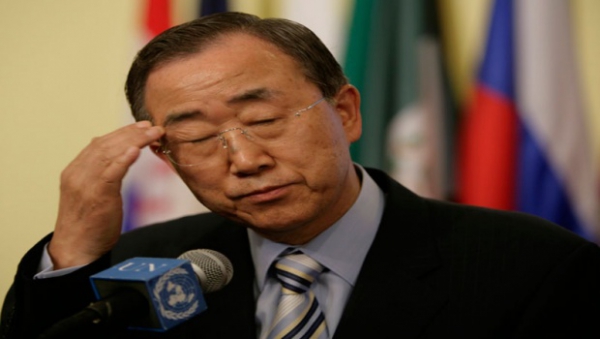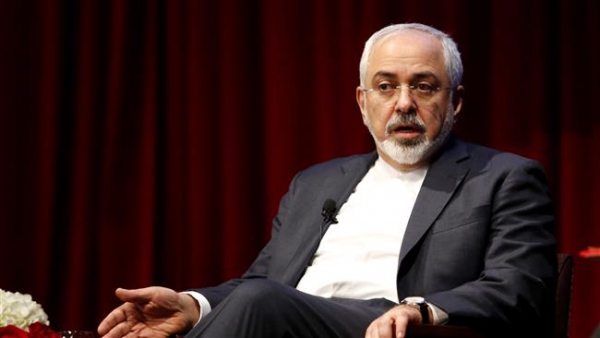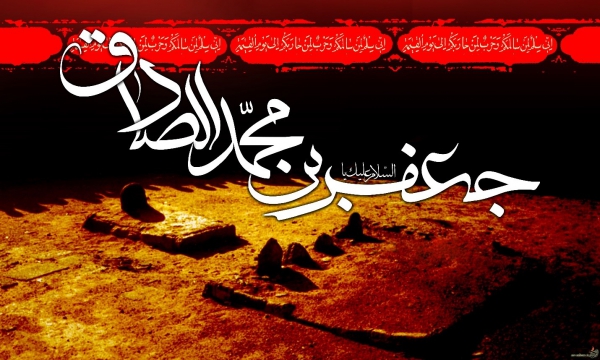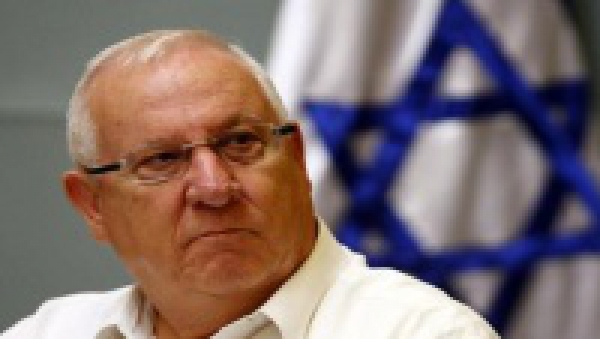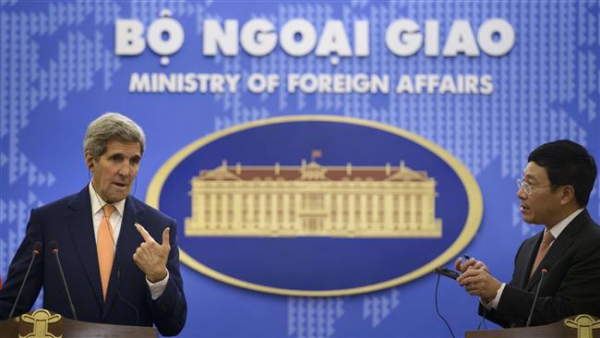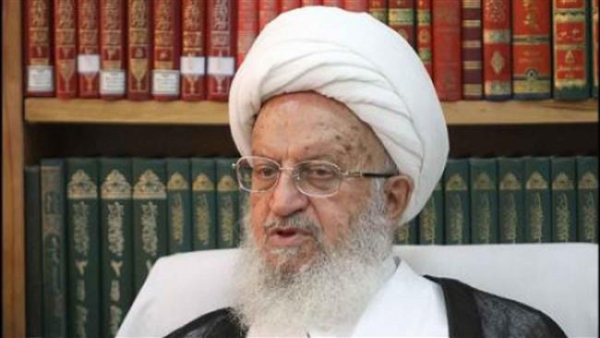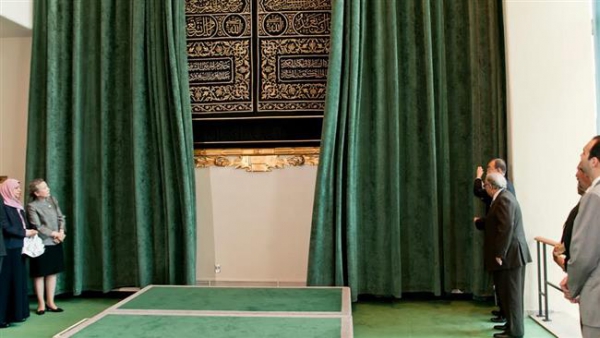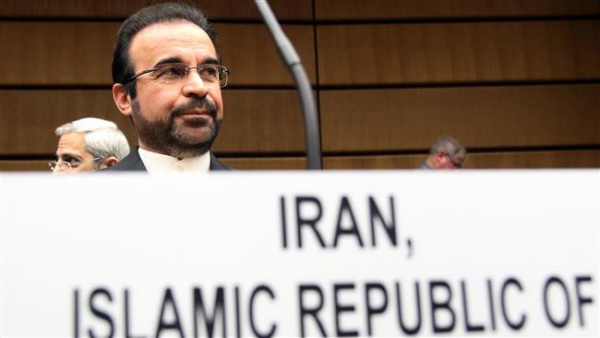hasania
UN chief admits to atrocity of Zionist settlers
The new spate of Zionists’ crimes in setting ablaze the Palestinian homes and hearths, which led to martyrdom of a Palestinian toddler, showed that the racist acts of the illegal Zionist entity have turned more atrocious. The Zionist regime’s crimes have sparked a wave of anti-Zionist protests, prompting the officials of the United Nations and UN Security Council to adopt a stand against to the said despicable arson attack.
Meanwhile, the UN Chief, Ban Ki Moon, on Friday, reacted to the atrocity committed by the brutal Zionist settlers, who burnt alive an 18-month old Palestinian child.
The UN chief named the indifference of the Zionist regime toward the previous violent crimes of the Zionist settlers as the root cause of the arsonist attack on a Palestinian home, which led to the martyrdom of the Palestinian infant, while urging the prosecution of the related Zionist arsonists.
The Zionist settlers set on fire two Palestinian homes in a village in the vicinity of the West Bank city of Nablus, by hurling Molotov cocktails and fire bombs at them. Meanwhile, in addition to the martyrdom of the Palestinian toddler in this barbaric attack, the parents and the four-year-old brother of this toddler also suffered burns.
Obviously, as the UN chief emphasized, the unwavering support of the Zionist regime for the Zionist settlers, and the impunity granted to them by the Israeli regime has granted the settlers the go-ahead to intensity their horrendous crimes against Palestinians.
Meanwhile, the inaction of the UN and its affiliated bodies, such as the UN Security Council, in the face of Zionist regime’s outrageous crimes has in fact emboldened the Zionist mercenaries to continue to attack the defenseless Palestinians.
On this basis, the UN chief, who has long been pressed by the international community to enlist the Zionist regime among the states that breach children rights, turned a blind eye to this righteous demand, laying the ground for the prolongation of such atrocious crimes.
The carnage and slaughter of Palestinians, including children, by the Zionist regime is visibly a crime against humanity.
Under these circumstances, the international community demands the punishment of Zionist regime.
Israeli plot against Iran-P5+1 JCPOA defeated: Iran FM
Iranian Foreign Minister Mohammad Javad Zarif says the Israeli regime's plot against Iran's nuclear agreement with six world powers has been defeated.
Zarif made the remarks on Tuesday upon his arrival in the Lebanese capital of Beirut on the first leg of his regional tour.
He said the nuclear agreement between Iran and the P5+1 group of countries – the United States, France, Britain, China, Russia and Germany – in Vienna last month created a historic opportunity for the countries in the Middle East region to repel dangerous threats such as the Israeli regime and terrorism.
Zarif expressed hope that the conclusion of Iran's nuclear talks with the world powers would benefit the countries and nations in the region.
On July 14, Iran and the P5+1 countries finalized the text of the nuclear agreement, dubbed the Joint Comprehensive Plan of Action (JCPOA), in Vienna.
Under the JCPOA, limits will be put on Iran’s nuclear activities in exchange for, among other things, the removal of all economic and financial bans against the Islamic Republic.
Zarif also pointed to the the Israeli regime, terrorism, extremism and violence as the major challenges facing the countries in the Middle East, adding: "Once more, I call on Muslim countries in the region to respond positively to Iran’s invitation to dialog and cooperation for guaranteeing the interests of regional states and nations.”
He emphasized that the Middle East countries need to hold dialog on how to deal with common challenges.
Zarif said he would exchange views with senior Lebanese officials on regional peace and security and ways to improve Tehran-Beirut cooperation.
He noted that coexistence among Lebanese groups and tribes and the country’s resistance against aggression, extremism and terrorism can set an example for other regional states to follow.
The Iranian minister arrived in Beirut at the head of a delegation on Tuesday on the first leg of the second round of his regional tours following the nuclear agreement between Iran and six world powers.
Zarif is scheduled to sit down with Lebanese parliament speaker Nabih Berri, Prime Minister Tammam Salam and Foreign Minister Gebran Bassil. He also plans to meet Lebanon-based representatives of Palestinian groups.
The Iranian foreign minister will fly to Syria on Wednesday before leaving for Pakistan, India and Russia in the following days
Imam, Ja'afar Ibn Muhammad Al-Sadiq (AS)
The 6th Imam, Ja'afar Ibn Muhammad Al-Sadiq (AS) was born in Madina on 17th Rabiul Awwal 83 Hijiri (702 AD). Died in Madina on 15th/25th Shawwal, 148 Hijri (765 AD) at the age of 65. Period of Imamat 34 years.
Imam Ja'afar (AS) was brought up under the guidance of his grandfather Imam Zainul Abedeen (AS) whose main concern was to worship his maker and reflect on the tragic events of Karbala and whose main avenue of teaching was through supplications. He also contemplated on the presence of his father Imam Baqir (AS), who was only three years old, at that tragic time. Imam Sadiq (AS) considered it his duty to convene the recitation gatherings (Majalis) about the sorrowful event of Karbala.
In 114 Hijri (732 AD) Imam Baqir (AS) passed away, and the responsibilities of Imamat devolved on the shoulders of Imam Ja'afar Sadiq(AS).
In spite of atrocities against the Descendants of Imam Hasan (AS), Imam Sadiq (AS) went on silently propagating the teachings of Ahlulbayt. As a result, even those who did not acknowledge him as an infallible Imam, nor knew his prestige or lineage, bowed before his knowledge and prided in being counted among his students.
Mansur the Abbasid Caliph wanted to remove the esteem in which the Imam was held by the people. He tried to bring scholars to compete with him but all of them proved incapable of arguing and succeeding even with his own students. These so called Ulemas of the Durbar all admitted that their counterparts had acquired the religious learning from the descendants of the Prophet (PBUH). The arrogant caliph ignored them and continued to undermine the popularity and respect of the Imam by other means. Failing this he decided to harass, arrest or to murder him. In every town and city hired agents were posted to monitor the activities of the followers of the Imam. Anyone who was found supporting the Imam would be arrested, imprisoned or killed.
The Imam himself was summoned from Medina to Baghdad, the newly founded Capital of the Abbasid regime. Until then it was Kufa, when transferred from Damascus after the fall of the Umayyad’s. Five times he was taken away from Medina to Baghdad, questioned or harassed in one way or the other. Mansur could never find sufficient grounds to order his imprisonment or assassination. On the other hand the consequent stay of the Imam in Iraq only expanded the circle of those who wanted to learn the teachings of Ahlulbayt from him. Perceiving this, Mansur sent him back to Madina. Even there, the Imam was not spared from persecution and harassment.
Character and Virtues
Imam Sadiq (AS) was one of those infallibles who were created by God to be models of moral excellence. The character and conduct of all those sages in different stages of their lives was the standard of excellence. The particular virtues of the Imam which were recorded by the historians included hospitality, charity, the helping of the needy in secrecy, the fair treatment of poor relatives, forgiveness, patience and fortitude.
Once a pilgrim visiting the Prophet's Mosque in Medina, fell asleep. On waking up, he hurriedly searched his belongings and found his purse which contained one thousand Dinars was missing. Looking around he saw the Imam was praying in one corner of the Mosque. He accused the Imam of having picked his purse. The Imam asked about its contents and was told that it contained one thousand Dinars. The Imam then asked the man to follow him to his house where he gave the man the same amount. When the stranger came back to the mosque satisfied, once more he checked his property and found that his purse was intact in another bundle. Greatly ashamed of his conduct, he came back to the Imam, apologized and asked him to take his money back. Imam replied with these words, "We never take back what we once give away, but if you feel guilty about it, give it to the poor of the town." The traveler gave all the money in Charity to the poor of Medina.
During the days of scarcity, when people tried to hoard food and other goods, Imam asked his household manager Trenchab, "The price of corn is rising day by day. How much corn is there in our warehouse," Trenchab replied that the Imam should not worry as there was a large quantity of corn in store. The Imam replied, "Give it away to the poor and let us face the situation along with others." Then he ordered that pure white wheat flour should not be used in his kitchen, and should be mixed with equal quantity's of oat flour. "We must share misfortune with the needy and the poor as long as it takes."
Disseminating knowledge and learning
His profound knowledge of religion and other sciences was famed throughout the entire Islamic world. People came from distant regions to learn from him. The number of his students reached over Four Thousands. Among them were scholars of Jurisprudence, Tafsir, Haidth such as Imam Noman bin Thabit, Abu Hanifa and Imam Malik Ibn Anas. Heads of other religions also came there to discuss with the Imams students many matters of dispute and on many occasions returned home embracing Islam. Sometimes he himself argued with the opponents especially atheists. Apart from religious sciences, he used to teach to some students mathematics, chemistry, medicine and astronomy. Jabir Ibn Hayyan, the famous pioneer of physics, chemistry and mathematics, was his disciple who wrote about four hundred treatises based on his mentor's instructions. The jurists who learnt from him and wrote several volumes of books on jurisprudence can be counted by the hundreds.
On the question of the freedom of will (Irada) which was much under discussion at the time, the Imam taught, "that God has decreed some things for us and He has likewise decreed some things through our agency, What He decreed for us or on our behalf He has concealed from us, but what He has decreed through our agency He has revealed to us. We are not concerned, therefore, so much with what he has decreed for us, as we are with what he has decreed through our agency."
As to the question of the power (Qadr) of directing one's own actions, the Imam took a middle position, which is neither compulsion (Jabr) nor committing (Tafviz) the choice to ourselves. He was accustomed to say in prayer, "O' God, tine is the praise that I give thee, and to thee is the excuse if I sin against thee. There is no work of merit on my own behalf, or on behalf of another, and in evil there is no excuse for me or for another".
Yakubi in his Tarikh remarks in regard to Imam Ja'afar Sadiq (AS) that, "it was customary for scholars who related anything from him to say 'the learned one informed us'." When we recall that Malik Ibn Anas (94-179) the author of Muwatta was a contemporary of the Imam Ja'afar Sadiq (AS), at least a century before the time of Bukhari and Muslim, it is significant to find that it is the Imam Ja'afar Sadiq (AS) who is credited with stating what came to be regarded as the most significant and important principle to observe in judging traditions: "What is in agreement with the Book of God, accept it, and whatever is contrary, reject it".
Yakubi also relates another saying of the Imam as follows:
"There are two friends, and whoever follows them will enter paradise", someone asked, "Who are they?" He said, "The acceptance of that which you dislike when God likes it, and the rejection of that which you like when God dislikes it."
Masudi, the famous historian, wrote one of the most important sayings of Imam Sadiq (AS) ascribed through Imam Ali (AS) who is said to have related that when God wished to establish the creation, the atoms of creatures and the beginning of all created things, He first made what he created in the form of small particles. This was before the earth and the heavens were created. God existed alone in His authority and power. So He cast forth a ray of light, a flame from His splendor and it was radiant. He scattered this light in the midst of invisible atoms, which He then united in the form of our Prophet. God most high then declared unto him, "You are the first of those who shall speak the one with power of choice and the one chosen. To you I have trusted my light and the treasure of my guidance. For your sake I will form spacious channels, give free course to the waters, and raise the heavens. For your sake I will give rewards and punishments, and assign men to Paradise or to the Fire. I will appoint the people of your household (Ahlulbayt) for guidance. I will bestow upon them the secrets of my knowledge. No truth will be hidden from them and no mystery concealed. I will designate them as my proof to mankind, as those who shall admonish men of my power and remind them of my Unity (Tawheed)". The light descended, the Imam Ja'afar continued, "upon our most noble men, and shown through our Imams, so that we are in fact the light of Heaven and of Earth. To us is salvation committed, and from us are the secrets of science derived, for we are the destination that all must strive to reach. Our Mehdi will be the final proof, the seal of the Imams, the Deliverer of the Imamat, the Apex of the Light, and the Source of all good work. Those who follow us will have our support in the hereafter."
Imam died in the 10th year of the reign of Caliph Mansur, 148 Hijiri (765 AD). He had worn a signet ring with the inscription, "God is my master and my defense from His creation." It is mentioned by historians that on Caliph's orders he was given poison in grapes which caused his death.
Imam Ja'afar Sadiq (AS) was buried in the cemetery of Baqi in Medina by the side of his father Imam Muhammad Baqir (AS).
Which of the two versions of Hadith Thaqalayn are more authentic?
Question:
Shiites say that the Prophet of Islam (S) said in the last days of his life: "I am leaving two things among you, the Quran and my progeny" Sunnis say, "the Quran and my Sunnah". Which is correct? What are the sources they are relying upon in connection with these two versions of a single tradition? Why has Dr Shari\'ati admitted "the Quran and my sunnah" in his The Safavid Shi\'ah.
Concise Answer:
The text of the report transmitted by Ahl-e Sunnah in Sahih Muslim, Sahih Timidhi and Musnad of Ahmad bin Hanbal is as such: "The Book of Allah and my progeny ('itrah)" This is the famous version of the tradition found in their books.
However, there is another text which is not found in Sunnis' authentic books known as the Sehāh but Hākim Neishaburi has narrated it in his book titled al-Mustadrak. Hākim-e Neishaburi's narration has been reported only by Abu Hurairah who is never considered to be a reliable narrator according to Shia. There is yet another version of the same tradition with "my companions" instead of "my progeny". This version of the tradition has been reported by people like Abu Sa'eid al-Khidri, Zaid bin Arqam and Zaid bin Thabit. This version of the tradition has been reported by more narrators and seems to be better and stronger than the one reported in Hākim-e Neishaburi's al-Mustadrak.
Detailed Answer:
Hadith Thaqalayn is one of the traditions reported by about thirty companions of the Holy Prophet (S) and as many as two hundred Sunni scholars have transmitted the same tradition in nearly five hundred books.[1] The documentations of this tradition can be found in the following index, "Sahih Bukhari and Hadith Thaqalayn", question 6921. As for Shia sources, we can give you an example of Shia books such as al-Kafi. It has been reported in this book that the Holy Prophet, peace be upon him and his family, said:
«إِنِّي تَارِكٌ فِيكُمْ أَمْرَيْنِ إِنْ أَخَذْتُمْ بِهِمَا لَنْ تَضِلُّوا كِتَابَ اللَّهِ عَزَّ وَ جَلَّ وَ أَهْلَ بَيْتِي عِتْرَتِی»[2]
“O people! I am leaving behind two things, which if you hold fast to, you will never go astray: the Book of Allah and, the members of my Household, my progeny."
The text of the report transmitted by Ahl-e Sunnah in Sahih Muslim[3], Sahih Timidhi[4] and Musnad of Ahmad bin Hanbal[5] is as such: "The Book of Allah and my progeny ('itrah)" This is the famous version of the tradition found in their books.
However, there is another text which is not found in Sunnis' authentic books known as Sehāh but Hākim Neishaburi has narrated it in his al-Mustadrak. In this book, he has collected the traditions and reports which Bukhari and Muslims have left out in their books. Hākim Neishaburi says:
.«...عن أبی صالح عن أبی هريرة قال: قال رسول الله (ص): إنی قد تركت فيكم شيئين لن تضلوا بعدهما: كتاب الله و سنتی و لن يفترقا حتى يردا علی الحوض»
"… From Abi Salih from Abi Hurairah: "The Messenger of Allah (S) said: "I am leaving behind two things, which if you hold fast to, you will never go astray: the Book of Allah and my Sunnah, they shall never separate until they meet me at the Pond."[6]
As it is clear, this tradition has been reported by Abu Hurairah.[7] The text of this tradition is very similar to the one reported by Sahih Muslim and Musnad of Ahmad. The difference is in "my Sunnah" which has been reported in the two books and other Sunni books as "my progeny".
Superiority of "my progeny, the members of my Household" to "my Sunnah"
A few reasons have been offered to show the superiority of the text, "my progeny, the members of my Household" to "my Sunnah":
1. The narration "my progeny, the members of my Household" has been reported in Sunnis' main books such as Sahih Muslim, Sahih Tirmidhi and Musnad of Ahmad but the narration "my Sunnah", as we mentioned earlier is not mentioned in any books other than Hākim-e Neishaburi's al-Mustadrak.
2. Hākim-e Neishaburi's narration has been reported only by Abu Hurairah who is never considered to be a reliable narrator according to Shia. There is yet another version of the tradition with "my companions" instead of "my progeny". This version of the tradition has been reported by people like Abu Sa'eid al-Khidri[8], Zaid bin Arqam[9] and Zaid bin Thabit[10]. This version of the tradition has been reported by more narrators and seems to be better and stronger than the one reported in Hākim-e Neishaburi's al-Mustadrak.
3. The narration which includes "my progeny, the members of my Household" is accepted by both Shia and Sunni sects. That is to say, this text is more acceptable to Muslims across the world than any other versions of the same tradition.
Resolving conflict between the two narrations
1. Based on the foregoing details and considering the great similarity between these two narrations, it can be concluded that there is only one narrative text which is the famous text "my progeny" while the word "sunnati" (my tradition) has been mistakenly or intentionally put in place of "my progeny". This interpolation reaffirms the fact that Abu Hurairah – as the only narrator of this tradition – and his co-thinkers distanced themselves from the Ahlul-Bayt and progeny of the Prophet (S) after his demise in the event concerning the successorship of the Messenger of Allah (S). In the effort to resolve the conflict, Abu Hurairah's tradition is discredited and rendered invalid.
2. Another probability – though weaker – is that the Prophet (S) may have said both of the traditions i.e. the famous tradition which says, "I am leaving behind two things: "the Book of Allah and my progeny" and he might have said at another place where Abu Hurairah had heard or only he has reported from the Prophet (S) that he said, "the Book of Allah and my Sunnah". In this supposition, there is no dichotomy between the two narrations because the Sunnah of the Prophet (S) is in no way in conflict with the Prophet's household. The household (Ahlul-Bayt) of the Prophet (S) are the ones who best knew the traditions of the Prophet (S) and acted upon them.[11] Hence, the two traditions can be reconciled with each other in the sense that both "my progeny" and "my Sunnah" are acceptable as they confirm each other.
Conclusion:
The tradition with "my progeny, the member of my household" ('itrati ahl- baiti) is not only acceptable to Shia but it is also more famous among Ahl-e Sunnah. The references were provided and it is, therefore, necessary for every fair writer to take these details into consideration in their discussions concerning this topic.
[1] Husseini, Tehrani, Sayyid Muhammad Hussein, Getting to Know the Infallible Imams (Imamology), Vol.4, p. 208, Allamah Tabatabai Publications, Mashad, third edition, 1426 A.H.
[2] Kulayni, Muhammad bin Ya'qub, al-Kafi, researcher and corrector: Ghaffari, Ali Akbar, Akhundi, Muhammad, vol.1, p 294, Dar al-Kotob al-Islamiyah, Tehran, fourth edition, 1407 A.H.
[3] Sahih Muslim, vol.7, p. 123, Dar al-Fikr, Beirut.
[4] Sahih Tirmidhi, vol.5, p. 328, Hadith 3874, Dar al-Fikr, Beirut, 1403 A.H.
[5] Musnad Ahmad bin Hanbal, vol.3, p. 14 and 17 and 26 and 59; vol.4, p. 371, Dar Sadir, Beirut, vide: Sahih Bukhari and Hadith Thaqalayn, question 6921.
[6] Neishaburi, Muhammad bin Abdullah, al-Mustadrak 'Alaa al-Sahihayn, vol.1, p. 172, Dar al-Kotob al-Ilmiyyah, Beirut, 1411 A.H.
[7] For information about Abu Hurairah's personality, see index: " Abu Hurairah's Personality according to the Companions", question 973.
[8] Ahmad bin Hanbal, Musnad of Ahmad, hadith 11135, Al-Shamela Library.
[9] Ibd, hadith 18464
[10] Ibid, hadith 20596.
[11] See: Index, "The Ahlulbayt (AS) Being Confined to the People of the Cloak", question 159; Ahlulbayt (AS) in the Verse of Purification", question 132.
Zionist regime in global isolation
The Head of Zionist regime, Reuven Rivlin, says that he doesn’t intend to stir controversy, but he is witness to the Israeli regime’s global isolation. The 74-year-old head of Zionist regime succeeded Shimon Perez in July 2014. Previously, he presided over the Knesset.The incumbent head of Zionist regime, in an interview with the Zionist paper, Ha’aretz, on Thursday, criticized the Israeli regime premier, Benjamin Netanyahu’s policies for persuading the US Congress to oppose the conclusion of nuclear talks between Iran and 5+1 Group member states, while adding that the Israeli regime’s premier, via adopting such measure, further isolated the Israeli regime across the globe.
The Zionist regime’s officials have admitted to spread of hatred, violence, and wrong and distorted beliefs throughout the occupied territories. Moreover, Zionist regime’s foreign policy has surged this crisis and has pitted the Zionist regime’s ringleaders against each other.
Iran and 5+1 Group member states reached a conclusion on Iran’s peaceful nuclear plan, on July 14, 2015, after months of negotiations. According to this conclusion, the US Congress has until September 17, 2015, to study and vote on this conclusion. Meanwhile, the Zionist regime’s premier is making strenuous efforts to persuade US Congress to vote against this conclusion
In a video conference clip on Tuesday, August 4, Netanyahu called on the American Jewish community to press the US Congress to reject the nuclear conclusion between Iran and 5+1 Group member states. Meanwhile, the outcome of opinion polls across the occupied territories shows that the Zionist regime is facing an internal crisis. The result of the study, which has been carried out by Tel Aviv University proves the surging distrust of the Israelis toward the Zionist regime, given that nearly one million Israelis live under the poverty line.
Within seven decades of occupation of Palestine and establishment of the illegal Zionist entity; the Israeli regime has prolonged its existence via its bellicose policies in the region and in occupied Palestine.
The US Congress forwards one billion dollars in financial assistance to Zionist regime every year, while delivering bombs, missiles, and warplanes to the usurper Israeli regime, while the illegal Zionist entity expands its arsenal of weapons through demanding the delivery of more weapons.
Under these circumstances, conclusion of an understanding between Iran and the West, on one hand, and signs of establishment of peace and stability in the occupied Palestine and possible materialization of the rights of Palestinian nation in formation of a Palestinian state, on the other hand, have infuriated the radical Zionists and have isolated the usurper Israeli regime, more than ever.
'US made willful decision to create ISIL'
The former director of the US Defense Intelligence Agency (DIA) has said that the rise of the ISIL terrorist group in Syria was a “willful decision” made by Washington.
According to reports, an internal DIA study released recently shows Washington knew that the actions of “the West, Persian Gulf countries and Turkey” in Syria may create a Takfiri group like the ISIL.
Michael Flynn, the former head of the DIA, has described the study as important and confirmed its findings.
In an interview with Al Jazeera TV, he said he had studied a DIA memo in 2012 predicting the West’s backing of ISIL in Syria, adding it was very clear intelligence.
When the interviewer asked whether the administration turned a blind eye to his analysis, Flynn said, “I don’t know that they turned a blind eye, I think it was a decision. I think it was a willful decision.”
Asked if it was a willful decision to support an insurgency, he responded, “It was a willful decision to do what they’re doing.”
He also said he had even argued against sponsoring foreign militants in Syria, noting the reason behind the rise of the ISIL was the US and its allies sponsoring terrorists in Syria to pressure Damascus.
US has globalist, imperialist foreign policy: Analyst
An American political analyst in Virginia says the United Sates has a globalist and imperialist foreign policy, while China has an isolationist and xenophobic approach towards foreign policy.
“China and the United States are polar opposite in terms of their foreign policy orientation. The United Sates has a very internationalist, globalist, imperialist approach to foreign policy,” said Keith Preston, chief editor and director of AttacktheSystem.com, a website dedicated to encouraging revolt against domestic and foreign US government policies.
He made the remarks in a phone interview with Press TV on Friday while commenting on US Secretary of State John Kerry’s latest warning to China over its construction of artificial islands in the South China Sea.
Kerry, who was addressing a regional forum of the Association of Southeast Asian Nations (ASEAN) in Kuala Lumpur, Malaysia, on Thursday, accused China of restricting navigation and overflights in the South China Sea, adding that Washington will not accept restrictions on movements in the sea.
“What is interesting about this is that the United States is somehow accusing the Chinese of overstepping its boundaries… because when we compare China’s foreign policy with the foreign policy of the United States, China is a far less aggressive, far less expansionist nation,” Preston said.
The United States has accused China of acting “out of step with both the international rules and norms" after Beijing began work to build artificial islands in the Spratly Islands, a disputed group of more than 750 reefs, islets, atolls, cays and islands in the South China Sea.
China, the Philippines and four other countries have been having disputes over ownership and control of the South China Sea for decades.
“This is a conflict between the foreign policy objectives of the two countries… the United States has a very unilateral, very globalist, very internationalist foreign policy that does reserve the right to intervene anywhere it wants,” Preston stated.
“The Chinese on the other hand have a more isolationist, some people say xenophobic, foreign policy that mostly is concerned about its regional sphere of influence, and protecting its own sovereignty,” he added.
Commenting on the nature of US-Sino ties, Preston said, “The relationship between the United States and China is somewhat symbiotic, in the sense that while there’s no love lost between the two countries, it’s also true that the United States is very heavily dependent on China.”
“First, as a source of financing, its massive fiscal deficits, which are huge; remember that the United States has a $19 trillion national debt; and much of its national debt is financed by Chinese banks, as well as Russian, Japanese and Saudi Arabian banks,” he pointed out.
“Also, American business corporations are very dependent on Chinese labor for manufacturing, and a lot of goods that are sold in American stores are imported from China,” the analyst noted.
“And at the same time, America is China’s primary export market. So the Chinese are also very dependent on the United States as their major export market,” he said.
“So, there is a sort of this interesting symbiotic, economic relationship between the two countries even if they are ostensibly rivals in the South China Sea,” Preston observed.
Senior Iranian cleric writes letter to al-Azhar’s grand imam
Senior Iranian cleric Ayatollah Nasser Makarem Shirazi has welcomed a call by the Grand Imam of the al-Azhar Mosque, Egypt’s top Muslim authority, for a unity meeting of leading Sunni and Shia scholars.
Ayatollah Makarem Shirazi has sent a letter to al-Azhar’s Sheikh Ahmed el-Tayeb, proposing a conference between top Shia and Sunni scholars “to review the most important obstacles in the way of Islamic unity” and “to set forth the most significant, necessary measures for reinforcing Islamic unity,” the Iranian cleric’s international affairs adviser Ayatollah Seyyed Mohammad Hosseini Qazvini told reporters on Monday, without specifying the date the letter was sent.
The call by Tayeb had been aired on Egypt’s state TV on July 22 at the end of a series of programs during the holy month of Ramadan.

Stressing the necessity of “coexistence and peace” between Shia and Sunni Muslims, Tayeb had urged Sunni scholars to issue a fatwa (religious decree) prohibiting the killing of Shia Muslims.
He had also called on Shia scholars to issue a similar fatwa banning the killing of Sunni Muslims.
Elsewhere in his remarks, Ayatollah Qazvini said Ayatollah Shirazi had included principal issues in his letter and is awaiting Tayeb’s response.
Piece of curtain used to cover holy Ka’aba reinstalled at UN headquarters in NY
A piece of the Kiswah, the black silk and gold-embroidered curtain used to cover the holy Ka’aba, has been reinstalled at the United Nations (UN) headquarters in New York.
The curtain was unveiled during a ceremony attended by the Saudi Arabia’s Permanent Representative to the UN Abdullah Al-Mouallimi and UN Secretary General Ban Ki-moon.
According to Mouallimi, the piece was first presented to the UN in the early 1980s and sent to Mecca in 2014 as the Indonesian Hall, where the piece had been installed, needed to undergo renovation. While back in Saudi Arabia, the piece also underwent maintenance work.
The tapestry consists of nearly 50 black cloths made of pure silk and is decorated with verses from the Quran. It is interwoven with silver threads covered with gold.
Kiswah is draped annually on the 9th day of the month of Dhu al-Hijjah on the Islamic calendar. The time coincides with the day Muslim pilgrims leave for the plains of Mount Arafat during the Hajj pilgrimage.
It covers the Ka’aba, the most sacred Islamic site, which attracts millions of Muslims to Mecca every year during the Hajj pilgrimage. All Muslims around the world face the Ka’aba during their daily prayers.
Every year, the old Kiswa is removed, cut into small pieces, and given to individuals such as visiting foreign Muslim dignitaries as well as organizations.
In the past, the Kiswah was divided and distributed among the families known as the Ka’aba curtain holders. Later, the Saudi Arabian government decided to send the Kiswah to different Muslim countries as a gift.
Iran warns IAEA against leakage of confidential data to US Senate
Iran has warned the International Atomic Energy Agency (IAEA) of the repercussions of disclosing to the US Senate the confidential data on the recently signed roadmap between Tehran and the UN nuclear agency.
Reza Najafi, the Iranian ambassador to the IAEA, told IRNA on Saturday that the confidential texts between Iran and the IAEA have not even been provided to the US government and can certainly not be given to the Senate either.
“Definitely, the agreements between a country and the [UN] agency, which are classified, can by no means be presented to any other country,” Najafi said.
IAEA Director General Yukiya Amano is set to travel to Washington next week to meet with members of the US Senate Committee on Foreign Relations to speak about the agency’s role in verifying and monitoring nuclear-related measures in Iran.
On July 14, Iran and the IAEA signed a roadmap in the Austrian city of Vienna for “the clarification of past and present issues” regarding Iran’s nuclear program.
After signing the agreement, Amano said the roadmap “sets out a clear sequence of activities over the coming months, including the provision by Iran of explanations regarding outstanding issues.”
He added that the roadmap enables the IAEA to “issue a report setting out the agency's final assessment of possible military dimensions to Iran's nuclear program, for the action of the IAEA Board of Governors, by 15 December 2015.”
The signing of the agreement came on the same day that Iran and the P5+1 countries – the United States, Britain, France, China and Russia plus Germany – finalized the text of an agreement, dubbed the Joint Comprehensive Plan of Action (JCPOA), in Vienna.
Under the JCPOA, limits are put on Iran’s nuclear activities in exchange for a set of commitments by the P5+1, including the removal of all economic and financial sanctions against the Islamic Republic.
Some members of the US Congress have asked that more information be made public on the IAEA’s role in verifying Iran's implementation of the agreement.
